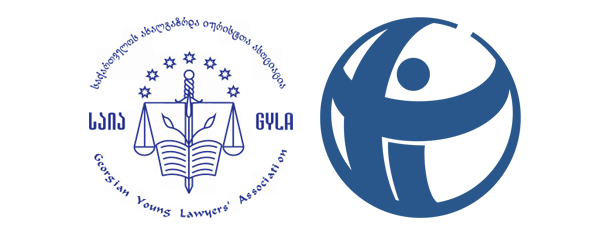


Tbilisi - Nino Gvenetadze, Chief Justice of Georgia, and David Stonehill, USAID’s Democracy and Governance Office Director, opened the presentation of High Council of Justice monitoring findings On April 25, 2015. Georgian Young Lawyers’ Association and Transparency International - Georgia presented High Council of Justice Monitoring Report #4. The report analyses the legislation and normative base and the activities of the Council on the selection/appointment of judges, transfer of judges, transparency of the work of the Council, disciplinary proceedings against judges, etc.
The monitoring revealed the following important findings:
The reporting period revealed many deficiencies in the work of the Council – the process of selection, appointment and transfer of judges was not transparent, raised doubts about their objectivity and neutrality; the Council was not as pluralistic as in the previous reporting period; the system of judicial accountability remained ineffective; minimum transparency of the evaluation of probationary judges was not ensured, etc.
On a positive note, the following can be mentioned:
- Agenda of the upcoming Council session was always published in advance, unlike the previous reporting periods, when it was not published at all, or was sometimes published with delays. In addition, in two instances, the documents which were to be discussed during the Council sessions, were published in advance on the website. Decisions of the Council were also published on the website in a rather timely manner, unlike the previous reporting periods.
- Several members of the Council made attempts to explain the motivation of their decisions via public statements, which can be positively assessed. Although it would be correct and preferable, if such justifications are provided in the Council’s decisions itself through making them substantiated and well-reasoned. Public statements may be appropriate to defend the reputation of the judiciary but not to explain the Council’s motivations and reasons behind a specific decision.
Some gross deficiencies that were observed in the HCOJ activities, result from ineffective legislative regulation on one hand, and the misinterpretation of applicable legislative norms by the HCOJ on the other hand. Namely:
There still does not exist the obligation of the Council to duly substantiate its decisions, which would make it possible to assess their objectivity, fairness, and impartiality regarding selection and appointment of judges, transfer of judges, disciplinary proceedings, and other issues.
- The criteria and the procedure for the selection and appointment of judges are not established by law which gives the Council broad discretionary power to adopt, amend or observe regulations for the appointment of judges which can easily be abused.
- In the reporting period selection of judicial candidates was not held in a transparent manner. Although interviews with the candidates were held publicly in an open session, the candidates were not equally interviewed which raised doubts about objectivity of the Council towards the candidates.
- The Practice of transfer/promotion of judges was not transparent and merit-based and respecting the principle of immovability of judges.
- The organic law regulating transfer of judges is ambiguous and grants the Council broad discretionary power which can be easily abused. During 2011-2015 approximately half of the judges were transferred or promoted to different courts.
- During the monitoring period only one judge was imposed a disciplinary responsibility. The statistic proves the ineffectiveness of existing mechanism of judicial accountability.
- During the current reporting period the matter of the conflicts of interest had been raised for several times but the Council was not able to prevent the conflict of interest in either of the cases.
- The problems remained with the media coverage of the Council meetings. The Council restricts the coverage of sessions via mass media in their full length. Although the openness of sessions of collegial bodies is guaranteed by legislation, the Council establishes a different rule and allows video and audio recording of the opening of its sessions only.
- During all three stages of the monitoring advance publication of information on scheduled Council meetings remained a problem. Information on holding of a session within the period determined by law was made public only in two cases.
As a result of monitoring, NGOs submitted relevant recommendations.
Georgian Young Lawyers’ Association and Transparency International Georgia will continue the monitoring process.
The report is made possible by the generous support of the American People through the United States Agency for International Development (USAID). The contents are the responsibility of Georgian young Lawyers Association and Transparency International Georgia and do not necessarily reflect the views of USAID, the United States Government or EWMI.
ჯ. კახიძის #15, თბილისი, საქართველო, 0102 ; ტელ: (995 32) 95 23 53; ფაქსი: (995 32) 92 32 11; ელ-ფოსტა: gyla@gyla.ge; www.gyla.ge
15, J. Kakhidze str. 0102, Tbilisi, Georgia. Tel: (995 32) 95 23 53; Fax: (995 32) 92 32 11; E-mail: gyla@gyla.ge; www.gyla.ge